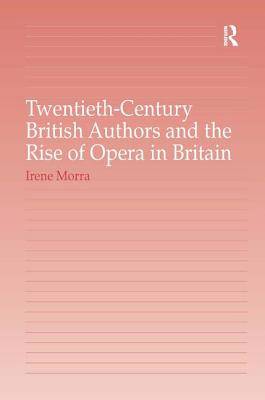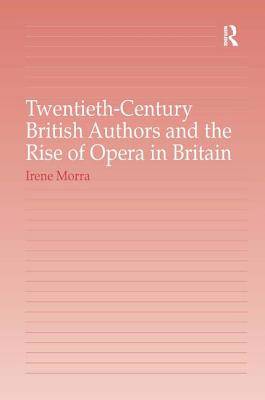
- Afhalen na 1 uur in een winkel met voorraad
- Gratis thuislevering in België vanaf € 30
- Ruim aanbod met 7 miljoen producten
- Afhalen na 1 uur in een winkel met voorraad
- Gratis thuislevering in België vanaf € 30
- Ruim aanbod met 7 miljoen producten
Zoeken
€ 202,95
+ 405 punten
Omschrijving
This book is the first to examine in depth the contributions of major British authors such as W. H. Auden and E. M. Forster, as critics and librettists, to the rise of British opera in the twentieth century. The perceived literary values of British authors, as much as the musical innovations of British composers, informed the aesthetic development of British opera. Indeed, British opera emerged as a simultaneously literary and musical project. Too often, operatic adaptations are compared superficially to their original sources. This is a particular problem for British opera, which has become increasingly defined artistically by the literary sophistication of its narrative sources. The resulting collaborations between literary figures and composers have crucial implications for the development of both opera and literature. Twentieth-Century British Authors and the Rise of Opera in Britain reveals the importance of this literary involvement in operatic adaptation to literature and literary studies, to music and musicology, and to cultural and theoretical studies.
Specificaties
Betrokkenen
- Auteur(s):
- Uitgeverij:
Inhoud
- Aantal bladzijden:
- 146
- Taal:
- Engels
Eigenschappen
- Productcode (EAN):
- 9780754660637
- Verschijningsdatum:
- 14/12/2007
- Uitvoering:
- Hardcover
- Formaat:
- Genaaid
- Afmetingen:
- 156 mm x 233 mm
- Gewicht:
- 430 g

Alleen bij Standaard Boekhandel
+ 405 punten op je klantenkaart van Standaard Boekhandel
Beoordelingen
We publiceren alleen reviews die voldoen aan de voorwaarden voor reviews. Bekijk onze voorwaarden voor reviews.











